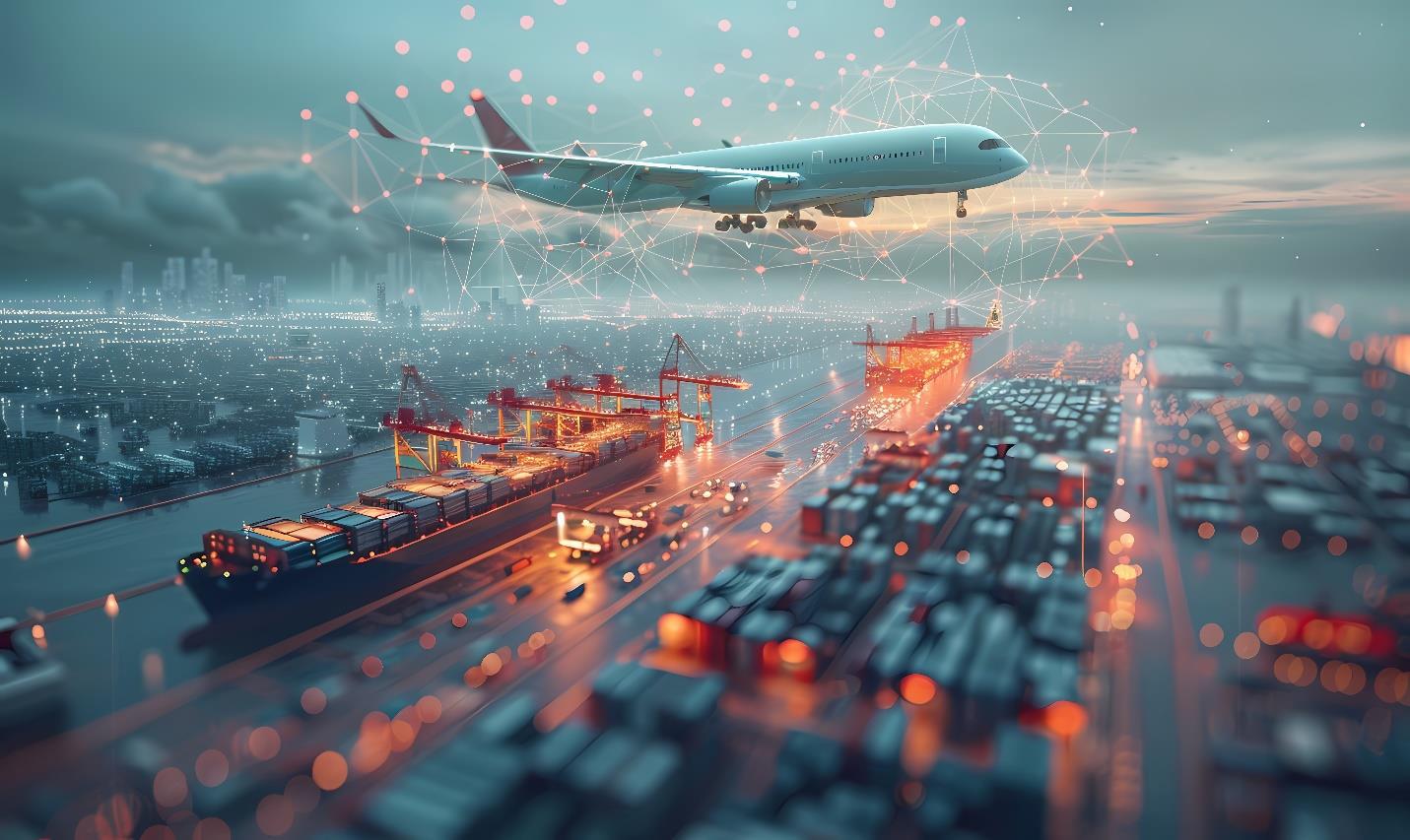The Evolution of Digital Freight Marketplaces : How Technology is Reshaping Logistics
In today’s fast-paced global economy, logistics and supply chain management are critical components that determine the success of businesses worldwide. Over the years, the advent of digital freight marketplaces has revolutionised these sectors, offering efficiency, transparency, and cost-effectiveness like never before. This blog explores the journey of digital freight platforms, their impact on logistics management, and the future trends shaping this dynamic industry.

The Rise of Digital Freight Marketplaces
Digital freight marketplaces emerged as a response to the inefficiencies plaguing traditional logistics systems. Historically, logistics and supply chain management relied heavily on manual processes, leading to delays, inaccuracies, and high costs. Enter digital freight platforms, which leverage technology to streamline operations, connect shippers with carriers, and optimise routes in real-time.The Growth Drivers Behind Digital Freight Marketplaces
Several factors have contributed to the rapid growth and adoption of digital freight marketplaces:- Technological Advancements: Advances in cloud computing, artificial intelligence (AI), machine learning (ML), and automation have empowered digital marketplaces to optimise routing, pricing, and scheduling decisions dynamically.
- Enhanced Connectivity: With the proliferation of smartphones and internet connectivity, stakeholders across the logistics chain can easily access and interact with digital freight platforms from anywhere, at any time.
- Demand for Efficiency and Transparency: Shippers and carriers alike demand greater efficiency, transparency, and cost-effectiveness in logistics operations. Digital marketplaces offer visibility into pricing, shipment tracking, and performance metrics, driving trust and accountability.
- Scalability and Flexibility: These platforms provide scalability to handle varying shipment volumes and flexible service options that cater to diverse logistics needs.
Key Advantages of Digital Freight Platforms
- Enhanced Efficiency: By automating tasks such as load matching, scheduling, and tracking, digital freight platforms reduce human error and save valuable time.
- Cost-Effectiveness: These platforms enable shippers to compare rates, choose optimal routes, and minimise unnecessary expenses, thereby improving the bottom line.
- Real-Time Visibility: One of the biggest advantages is the ability to track shipments in real-time, providing transparency and accountability throughout the supply chain.
Key Technological Innovations Reshaping Logistics
Digital freight marketplaces harness cutting-edge technologies to deliver seamless logistics solutions:- Artificial Intelligence (AI): AI algorithms optimise freight matching and route planning based on historical data and real-time conditions.
- Blockchain: Secure, transparent transactions and immutable records enhance trust and traceability in supply chain management.
- Internet of Things (IoT): IoT sensors monitor cargo conditions (temperature, humidity, etc.) in transit, ensuring compliance with quality standards.
- Predictive Analytics: Leveraging historical data and AI algorithms, predictive analytics forecast demand patterns, optimise inventory management, and preemptively identify potential disruptions.
- Automation and Robotics: Automated warehouses and robotic process automation (RPA) streamline order fulfilment, reduce human error, and accelerate the loading and unloading process.
Impact on Logistics Management
The integration of digital freight platforms has significantly transformed logistics management practices:- Efficient Resource Allocation: Shippers can dynamically allocate resources, reducing idle time and improving fleet utilisation.
- Predictive Analytics: Data-driven insights enable proactive decision-making, anticipating demand fluctuations, and optimising inventory levels.
- Customer Experience: Enhanced visibility and reduced lead times translate into better customer satisfaction and loyalty.

Challenges and Future Outlook
Looking ahead, the digital freight marketplace is poised for further evolution:
- Data Security and Privacy: With increased reliance on digital platforms, ensuring data security and protecting sensitive information remain critical concerns.
- Regulatory Compliance: Navigating regulatory frameworks across different regions and countries poses challenges for digital freight marketplaces operating globally.
- Integration and Adaptation: Adoption rates vary among different segments of the logistics industry, requiring platforms to tailor solutions that address specific needs and operational constraints.
- Emerging Technologies: Continued advancements in AI, IoT, and blockchain are expected to further transform digital freight marketplaces, enhancing efficiency and scalability.
- AI-Powered Predictions: Predictive analytics will become more sophisticated, enabling proactive risk management and demand forecasting.
- Eco-Friendly Initiatives: Sustainable logistics practices, such as optimising routes to reduce carbon footprints, will gain prominence.
Conclusion
The evolution of digital freight marketplaces represents a paradigm shift in the logistics industry, driven by technological innovation and a growing demand for efficiency and transparency. As these platforms continue to mature and expand their capabilities, they will play an increasingly pivotal role in reshaping global supply chains, fostering collaboration, and driving sustainable practices. Embracing these technological advancements will be crucial for stakeholders aiming to stay competitive in an increasingly digitised logistics landscape.
Explore how your business can leverage digital freight platforms to optimise logistics management and streamline supply chain operations. Contact us today to learn more about integrating these transformative technologies into your business strategy.